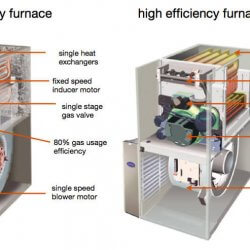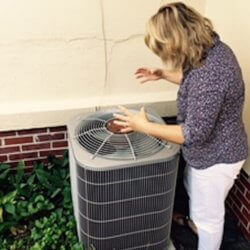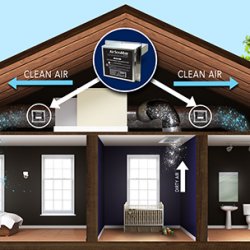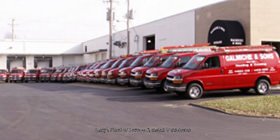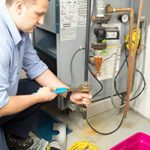Fall is right around the corner. Many people suffer from seasonal allergies during the fall, and it is not just an outdoor problem. Dust, pollen, dander, and other pollutants can also hamper the quality of air indoors. Air purifiers are an ideal indoor air quality solution that can help remove these contaminants, improving the air quality indoors. However, there are many types of air purifiers. Which one should you pick for your home?

To learn more about the types of air purifiers or for help selecting and installing the best systems in your home or commercial space, contact the heating and air conditioning experts at Galmiche & Sons in St. Louis today!
What Are the Different Types of Air Purifiers?
There are different types of air purifiers available on the market today. Some are available as standalone units while others come as a part of your HVAC system. Here are some of the most common types of air purifiers used at home.
HEPA filters
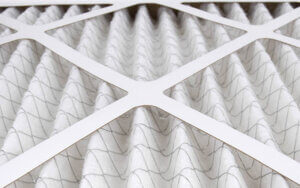
HEPA filters are extremely popular because they can remove up to 99% of airborne pollutants and allergens. They can efficiently remove dust and mold spores as tiny as 0.3 microns. HEPA filters give you a very high level of protection and are perfect for people suffering from allergies or respiratory problems.
Pros of HEPA Filters
The biggest advantage of HEPA filters is that they are extremely efficient at purifying indoor air. HEPA filters are designed to catch many indoor pollutants, such as pollen and pet dander. It is also quite cost-efficient as the filters can usually be easily installed in your existing HVAC system.
Cons of HEPA Filters
Although HEPA filters can capture most pollutants, they cannot capture certain indoor pollutants, such as gases and fumes. Also, mold spores can settle on the filter itself, significantly reducing its efficiency.
UV Filters
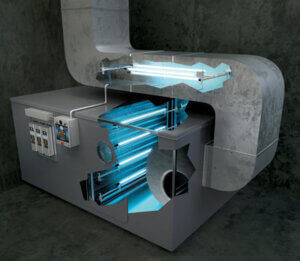
UV filters use ultraviolet light to kill germs in the indoor air. When air passes through UV filters, it gets disinfected through UV radiation killing several microorganisms, including mold spores. If you want to eliminate bacteria and viruses from the air indoors, this is the air purifier you should choose.
Pros of UV Filters
The UV light used in these filters can kill several germs, viruses, and bacteria, preventing respiratory issues and other illnesses.
Cons of UV Filters
UV filters are not very efficient in getting rid of dust and other allergens. They also do not capture fumes, smoke, and gases. Also, installing a UV filter can be expensive.
Electrostatic Filters
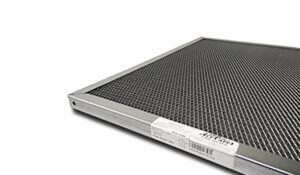
Electrostatic filters use paper and cotton fibers that capture many airborne particles, such as dust and dander. It has a very strong magnetism that prevents allergens from spreading through your home. If you suffer from frequent allergies, you should consider this type of air purifier option.
Pros of Electrostatic Filters
These filters are available in disposable as well as reusable variants. Whatever you choose, this is one of the most cost-efficient solutions available in the market.
Cons of Electrostatic Filters
Although these filters are great at capturing smaller pollutants, they are not very effective at capturing allergens, such as mold spores. So it is not a great choice for those suffering from respiratory issues.
Spun Glass Filters
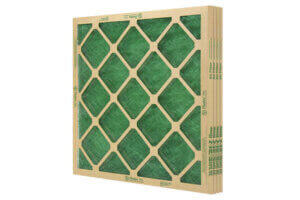
These filters are made using thin strands of fiberglass, and are most commonly used in HVAC systems. It is one of the best AC filters because it protects your air conditioner from debris. They are also disposable and cost-effective. However, they are not very efficient in improving air quality and are not recommended for people suffering from allergies or respiratory illnesses.
Pros of Spun Glass Filters
These are one of the cheapest air purifiers available on the market. They are also very good at capturing debris, including dust and lint.
Cons of Spun Glass Filters
These filters have a small surface area, which makes them ineffective at filtering small pollutants. If you suffer from asthma and respiratory illnesses, you should not buy this air purifier.
Call Galmiche & Sons for More Information on Different Types of Air Purifiers
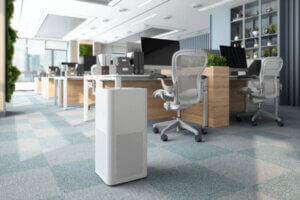
Galmiche & Sons are experts in the field of HVAC, serving the heating and air conditioning needs of St. Louis homeowners and businesses since 1950. If you want to learn more about the different types of air purifiers and which one is suited for your house, call Galmiche & Sons today at 314-993-1110.




